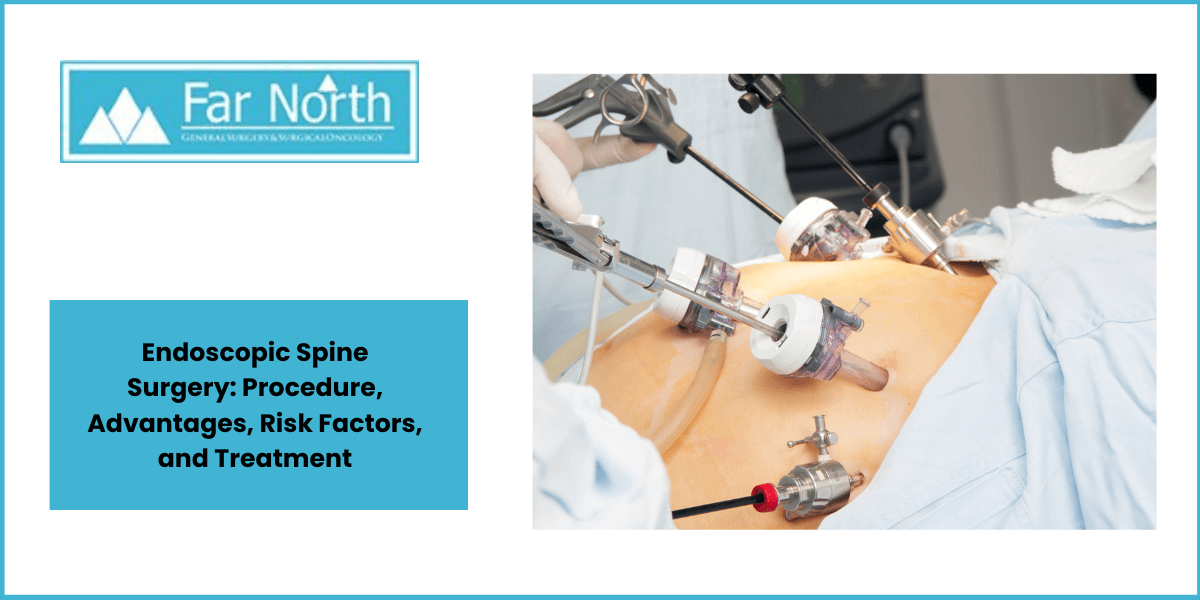


Endoscopic Spine Surgery ESS is a great example of how far medical science has reached in recent years. A few years back, the term spine surgery would cause much anxiety among patients because of its complexity, large incision, and of course, the long period of recovery times. However, with the emergence of endoscopic spine surgery, it is no longer so.
Endoscopic spine surgery is an effective surgical procedure that uses the least invasive method to work on a variety of spine troubles that cause back aches. The best thing about endoscopic spine surgery is that it does not need long general anesthesia, a long-term hospital stay, or long incisions requiring stitches.
An endoscope is a tiny video camera inserted into the body to see the internal organs. An endoscope camera is inserted within the body via a small incision. The incision can be less than one inch long. A specialist neurosurgeon then performs the surgical procedures by passing the surgical instruments through this endoscope. Usually, spinal discords like bone spurs or a herniated disc and spinal stenosis can be cured with endoscopic spine surgery.
Endoscopic spine surgery is a state-of-the-art advanced form of minimally invasive spinal surgery. One of the reasons patients nowadays choose ESS over traditional spine surgery is because it provides better results for the spine's mobility post-operation. The procedure for ESS can often be performed with local anesthesia rather than general anesthesia.
See Also: What Are the Symptoms of Endocrine Disorders?
Endoscopic spine surgery is a minimally invasive surgical procedure that should not be confused with traditional spine surgeries. There are certain advantages of endoscopic spine surgery. If a patient undergoes endoscopic spine surgery, they will suffer from:
The best part of undergoing endoscopic spine surgery is that the patient will have a reduced time of hospital stay and early recovery. The graph of success rates for endoscopy surgery is also rising rapidly. However, it must also be mentioned that this type of surgery is unsuitable for all spinal troubles like cancer, scoliosis, spinal instability, or trauma. Only a specialist neurosurgeon can determine the kind of surgery needed for a patient depending on different health conditions and factors.
See Also: Minimally Invasive Surgery and Its Benefits: An Overview
If you are suffering from a chronic backache, it can be caused by different conditions. Some of the most common backaches result from:
You might need to opt for endoscopic spine surgery if you have been diagnosed with any of the backaches mentioned above.
Endoscopic spine surgeries can greatly benefit patients over 65 years of age and suffering from spinal diseases. If you have disk herniation, ESS is perfect for you. If you have age-related spinal conditions that are degenerative, endoscopic spinal surgery can offer excellent results with minimal complications and, of course, a quicker recovery.
However, any spinal surgery is not always the first line of treatment. It is often the last choice for surgeons. They prefer other non-surgical methods like physical therapy and spinal injections before opting for surgical procedures.
One study describes the technique for P-PECD performed via a fully endoscopic approach under local anesthesia for a soft disc herniation causing radicular symptoms and reported clinical success in over 95% of patients, no intra- or postoperative complications, and no deterioration of existing symptoms.
There is no denying the fact that endoscopic spine surgery is a highly specialized surgical skill that not all neurosurgeons possess. It is a special skill set that only a handful of neurosurgeons have acquired. Therefore, it is important to note that you should only choose a specialist with a proven track record of endoscopic spine surgery in case you want to opt for a surgical process.
Suppose you are suffering from chronic back pains and are exploring the choice of endoscopic spine surgery. In that case, you must ensure that an experienced and expert neurosurgeon performs the procedure.
See Also: AI-Enabled Robotic Surgery: How Collaborative Robots Are Assisting Surgeons
At Far North Surgery in Anchorage, AK, we have a team of highly competent board-certified general surgeons. Our surgeon Dr. Madhu Prasad has been chosen for the Best Anchorage Awards for Cancer Treatment. We collaborate with other expert neurosurgeon specialists to offer top-grade medical care to all our patients. Contact us today if you are looking for an expert neurosurgeon.